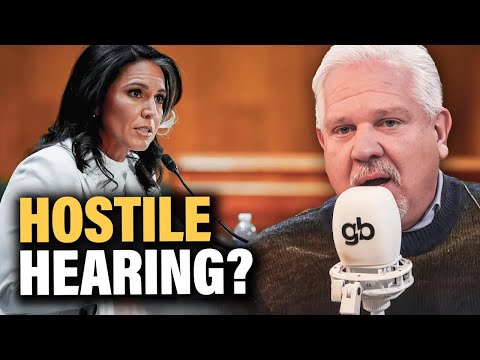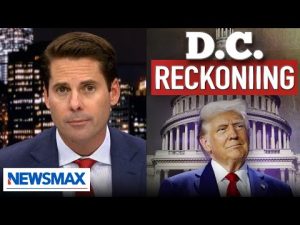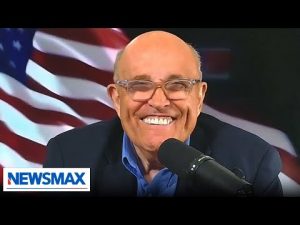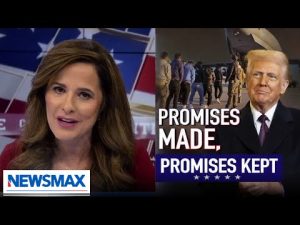In a world where political drama unfolds like a high-stakes thriller, it seems that Tulsi Gabbard has found herself at the center of a captivating narrative involving deep-state intrigue, intelligence agencies, and challenges to the Washington establishment. Once known for her free spirit and maverick approach, Gabbard is now in the running for the Director of National Intelligence, a role that carries the weight of disclosing veiled secrets and navigating through a labyrinth of political adversaries. However, it appears that her unconventional journey is causing ripples among the political elite, as she faces scrutiny from the so-called “deep state.”
Recent reports highlighted how Gabbard’s travels abroad have drawn the watchful eye of deep-state intelligence operatives. Whispers about her alleged meetings with foreign leaders have only added fuel to the fire of conspiracy theories that seem to be standard operating procedure for anyone daring to disrupt Washington’s status quo. For Gabbard, this process is not just an ordinary confirmation hearing; it’s a perilous battle against an unseen adversary. Similar to Donald Trump’s uphill battle against an establishment reluctant to embrace disruption, Gabbard finds herself under a political microscope, where a few anonymous sources can spark a potentially damaging narrative in the media.
One cannot underestimate the danger of stepping into a role that could pit Gabbard against the very intelligence agencies tasked with safeguarding American interests. The Director of National Intelligence, a position created in the wake of 9/11, oversees a staggering array of 18 intelligence agencies. The job demands not only strategic foresight but also an unwavering commitment to transparency and civil liberties. Presiding over such an array of powerful entities is daunting, especially when those in power may not appreciate the potential for reform Gabbard represents.
As Gabbard prepares for her confirmation hearing, walking a tightrope between open reformist zeal and the nuances of Washington politicking will be critical. There is a delicate balance to maintain; if she charges in guns blazing as the disruptor she has often professed to be, she risks alienating the very senators whose votes she desperately needs. Her ability to convince hesitant committee members that her priority is safeguarding national security while also embracing the principles of civil liberties will be essential for her political survival.
Although the political spectacle surrounding Gabbard is captivating, it isn’t happening in isolation. Across the aisle, Robert F. Kennedy Jr. is making headlines under similar scrutiny, drawing the ire of Democrats as they rally against what they see as existential threats. The political atmosphere is charged, with both Gabbard and Kennedy representing a new wave of political discourse that challenges conventional boundaries. Republicans expect turbulence during their respective hearings, as these nominees risk igniting longstanding feuds within the political arena.
In an era when transparency should reign supreme, the status of votes in these confirmation hearings remains a topic of contention. With senators often casting secret ballots, many are calling for openness in a political landscape that thrives on the concept of accountability. The ability to witness who stood where in critical votes could bring much-needed clarity to a chaotic system. For Gabbard and Kennedy, whether they triumph through these challenges may very well hinge on their capacity to navigate a web of conflicting interests and ideologies while keeping an eye on their ultimate goals.
As the clock ticks down to Gabbard’s forthcoming hearing, the nation watches. Like a rollercoaster ride through the twists and turns of politics, Gabbard’s fate hangs in the balance. Her fight against the entrenched powers of the deep state, alongside her counterpart Kennedy, may very well serve as the stage for what could be a transformative moment in American politics. Whether she emerges as a symbol of change or falls victim to the very political machinery she seeks to reform is a tale that is still unfolding. Buckle up, America, because this ride is anything but boring!



